Persian cats are known for their luxurious coats, affectionate nature, and laid-back temperament. One of the aspects that cat owners often wonder about is how much do Persian cats sleep.
Persian cats, like any feline, require an adequate amount of sleep to maintain their overall well-being and happiness.
Understanding how much Persian cats sleep, as well as what factors might influence their sleeping patterns, can help you ensure your feline friend enjoys a healthy and comfortable life.
When it comes to Persian cats sleep, they typically rest for anywhere between 12 and 16 hours a day, with some even sleeping up to 20 hours in some cases.
This is similar to other breeds in terms of their sleep requirements. The stage of life your cat is in, such as a kitten or senior years, can also affect their sleep patterns.
It’s essential to keep in mind that each Persian cat is unique, and their individual sleeping habits may vary depending on factors such as their environment, age, and temperament.
Key Takeaways
- Persian cats generally sleep between 12 and 16 hours a day, with variations based on factors like age and environment.
- Just like other breeds, the stage of life can impact a Persian cat’s sleep patterns.
- Ensure your Persian cat is comfortable and healthy by monitoring their sleep habits and providing a cozy environment.
How Much Do Persian Cats Sleep?
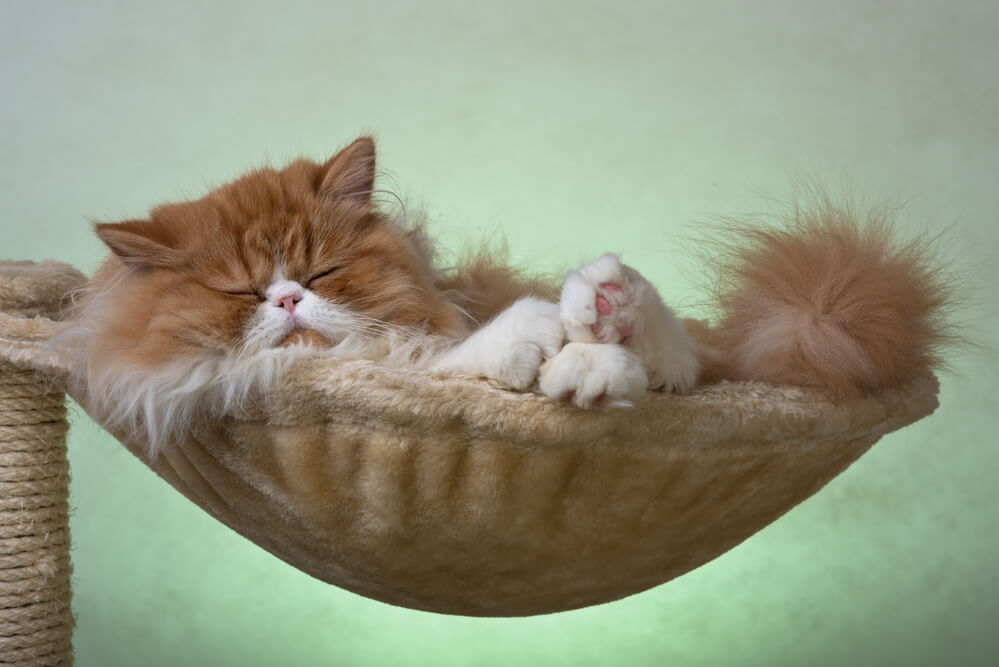
Physical Characteristics
Persian cats are known for their luxurious fur and large, round eyes. Their coat is thick and long, which often requires regular grooming to prevent matting and help manage shedding.
Despite their glamorous appearance, Persian cats have a stocky build with a short nose, giving them a distinct, adorable appearance.
Behavioral Traits
Persian cats are generally calm and affectionate and adapt well to a variety of home environments.
They’re known to enjoy lounging around and can often be found napping in comfortable spots around your home. In fact, Persian cats sleep between 16-20 hours a day, which is higher than the average domestic cat, who sleeps around 12-16 hours daily.
This sleepy lifestyle means you’ll find your Persian cat frequently snuggling in cozy corners or curled up on your lap for a nap.
Persian cats are also known for being social animals, enjoying the company of their humans, and forming strong bonds with their owners.
They are generally not overly active cats, preferring to observe their surroundings and engage in activities at their own pace.
Remember that each Persian cat has its own personality, and individual variations in sleep patterns and behaviors will occur.
However, understanding the general lifestyle of a Persian cat can help you create a comfortable and suitable environment for your furry friend.
Regular grooming, a comfortable and safe environment, and plenty of affection will go a long way in ensuring your Persian cat is happy and content.
Typical Sleeping Habits of Persian Cats
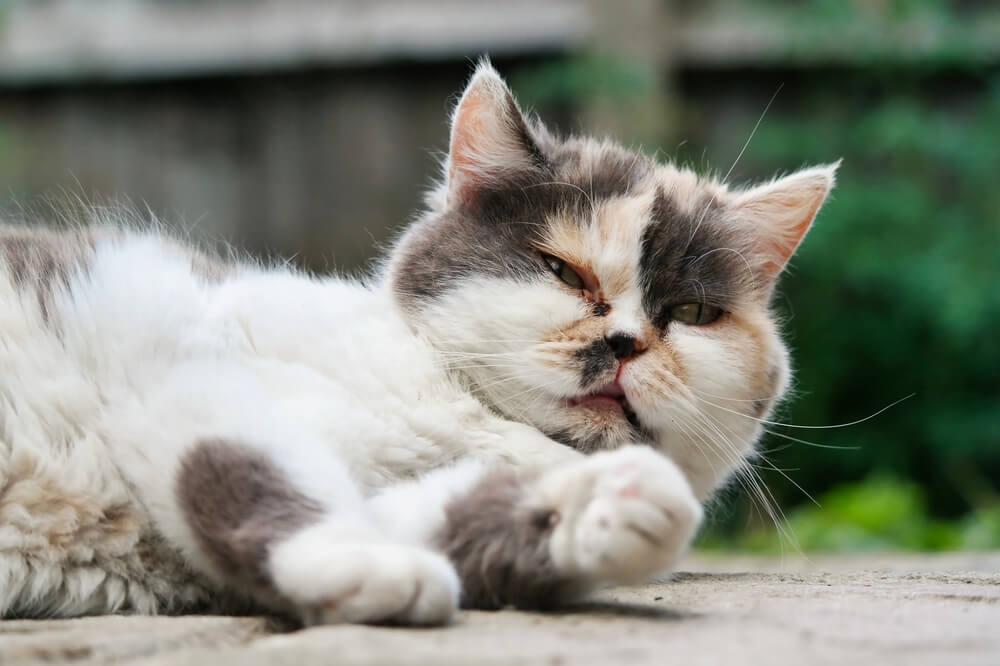
Persian cats are popular for their unique appearance and gentle temperament. Understanding their sleeping habits is crucial for maintaining their health and well-being.
Being aware of these habits helps you accommodate their needs and ensures a happy, healthy companion.
Persian cats typically sleep 12 to 16 hours a day. However, it is not uncommon for them to sleep up to 20 hours a day on some occasions.
The amount of sleep they need depends on their stage of life, with kittens and senior cats requiring longer periods of rest compared to adult cats in their prime years.
Learning to identify their sleeping patterns can help you provide a comfortable environment that caters to their unique needs.
It’s also important to understand that the amount of sleep your Persian cat requires can vary depending on their overall health and activity level.
Factors such as diet, exercise, and medical conditions can all influence their sleeping patterns. Keep an eye on your cat’s behavior, and consult your veterinarian if you notice any sudden changes in their sleeping habits.
Balancing sleep with playtime and exercise is essential for your Persian cat’s overall well-being. Providing them with engaging toys, comfortable resting spots, and a safe space to roam can help them maintain a healthy sleep schedule.
By paying attention to their needs and monitoring their behavior, you can foster a strong bond with your fluffy companion and ensure a long, happy life together.
Factors Influencing Persian Cats Sleep
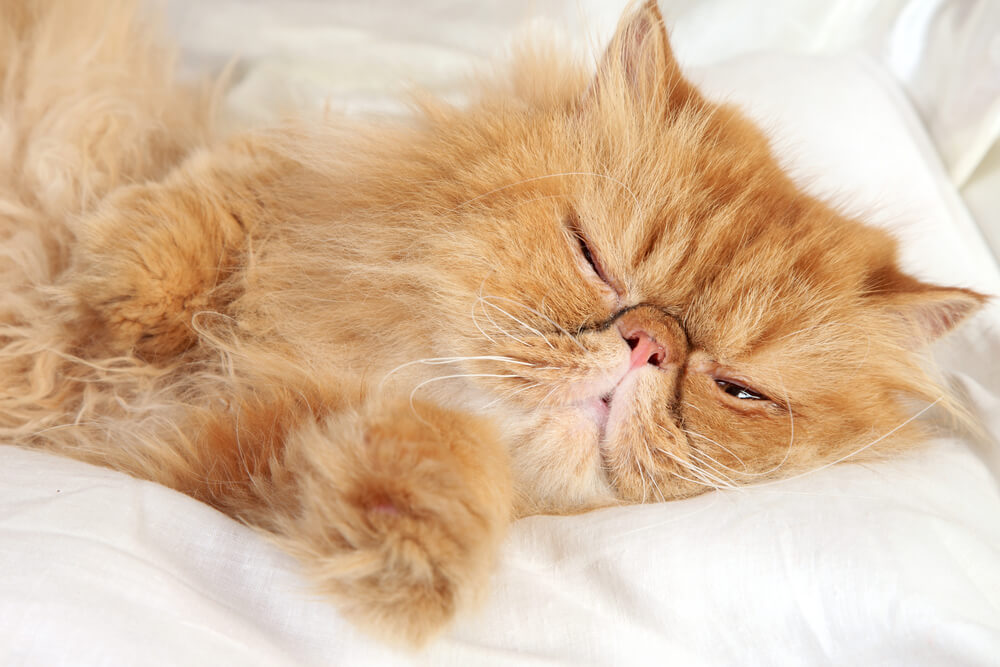
There are several factors that can influence the amount of sleep your Persian cat requires. One of the main factors is the age of your cat.
Kittens and senior cats tend to sleep more than adult cats in their prime years. An adult Persian cat usually needs about 16 hours of sleep each day.
Another important factor is the breed of your cat.
While the sleeping hours for Persian cats are generally no different than other breeds, it’s worth mentioning that Persian cats are known for being quite lazy compared to more active breeds like Siamese or American Shorthair cats.
Weather can also play a role in your Persian cat’s sleep habits. Cats tend to sleep more during rainy and wintery seasons as the colder weather makes them more inclined to nap and conserve energy.
Lastly, your cat’s environment can greatly affect its sleep patterns. To encourage healthy sleep habits, create a comfortable sleep area for your Persian cat while minimizing noise and distractions.
Maintaining a consistent sleep schedule is also important to help regulate your cat’s natural sleep-wake cycle.
Remember, if you notice any significant changes in your Persian cat’s sleep patterns, it’s always a good idea to consult a veterinarian to rule out any potential health issues.
Comparing Persian Cats Sleep to Other Breeds
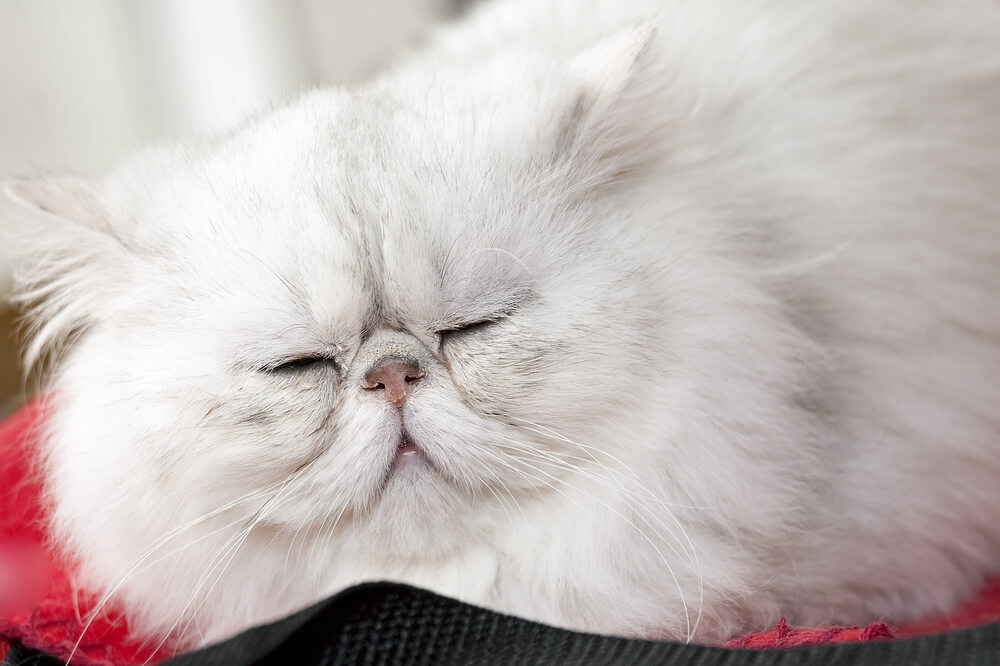
You may wonder how Persian cats’ sleep habits compare to other breeds. It’s important to understand that, in general, cats require about 16 hours of sleep each day.
However, this number can vary depending on the breed and the cat’s age.
Persian cats are known to sleep between 12 to 16 hours a day, and they can even sleep up to 20 hours a day.
This range is no different than other breeds when considering factors like life stage, but Persian cats are sometimes on the higher end of this range due to their laid-back nature and low activity levels.
When compared to other breeds, an average domestic cat usually sleeps around 12-16 hours daily.
In contrast, more active breeds like Abyssinians or Bengals may have slightly shorter sleep periods because they have higher energy levels and require more mental stimulation.
It’s essential to pay attention to your Persian cat’s behavior and energy levels during their awake hours to determine if they are getting enough sleep.
Meeting their sleeping needs is important for their overall health and well-being.
Remember that while these numbers are typical, every cat is unique, and individual differences should be considered.
Always keep an eye on your Persian cat and consult with a veterinarian if you notice sudden changes in their sleeping habits or other behaviors, as it could be an indication of a health issue.
How to Ensure Your Persian Cat is Getting Enough Sleep
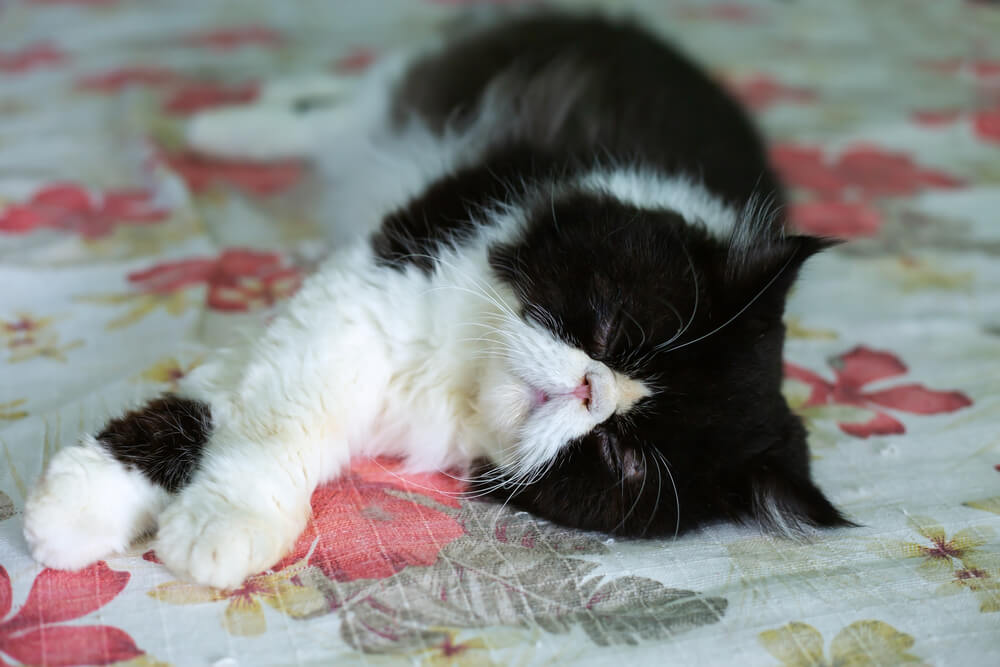
Creating a Comfortable Sleep Environment
To help your Persian cat get the necessary 12 to 16 hours of sleep per day, start by creating a cozy and comfortable sleep environment.
Provide a soft and warm bed or blanket that your cat can snuggle into. Keep their bed away from doors and windows to minimize noise and distractions.
Moreover, maintaining a consistent room temperature is also essential in providing a comfortable space, as Persian cats may be sensitive to temperature changes.
Establishing a Regular Sleep Schedule
Establishing a regular sleep schedule for your Persian cat is crucial in ensuring they get enough rest. Try feeding your cat around the same time each day and engage in playtime or grooming before bedtime.
This routine can signal to your cat that it’s time to wind down and sleep. Be mindful of your cat’s natural sleeping patterns, and try not to disturb them when they are resting.
Following these simple tips can make a significant difference in ensuring your Persian cat gets the rest they need to remain healthy and happy.
Possible Sleep Disorders in Persian Cats
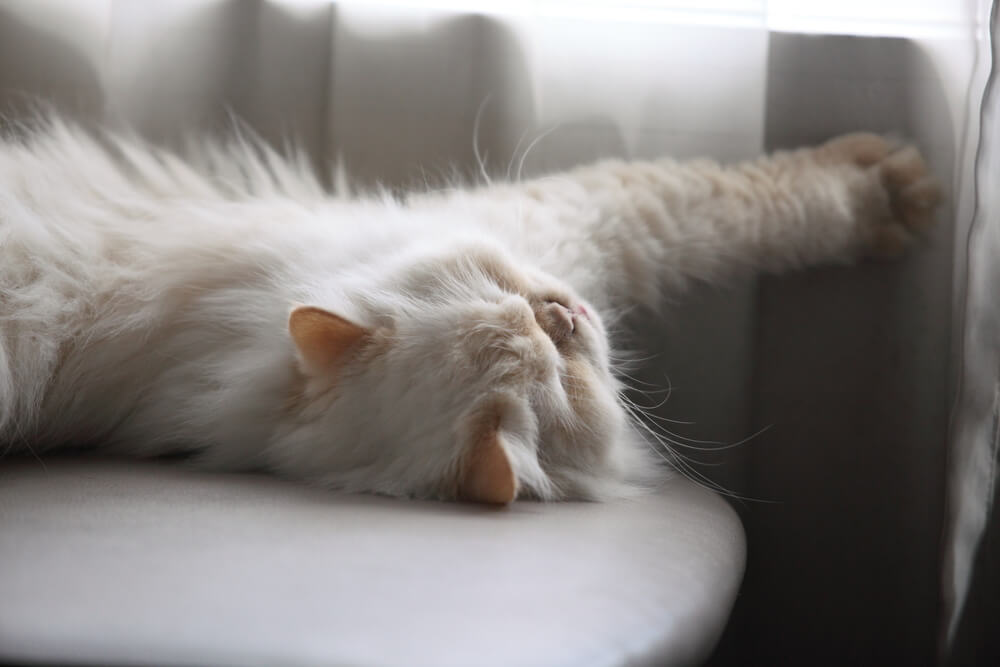
Recognizing Sleep Disorders
While Persian cats are known to sleep for 16 to 18 hours a day, it’s important to be aware of possible sleep disorders.
To recognize sleep disorders in your Persian cat, pay attention to changes in their sleeping patterns or other unusual behaviors.
Some common signs of sleep disorders include:
- Excessive sleepiness or lethargy during their awake hours
- Restlessness or difficulty settling down for sleep
- Frequent waking up during the night
- Unusual vocalizations or movements while sleeping
Keep in mind that Persian cats are naturally more laid-back and sleep longer than other breeds. It’s essential to understand their typical sleeping habits before assuming there is a problem.
Consulting a Veterinarian
If you suspect that your Persian cat has a sleep disorder or exhibits any unusual behaviors, it’s important to consult a veterinarian.
They will assess your cat’s overall health, possibly performing diagnostic tests to determine the cause of the sleep issue.
Some common sleep disorders in cats include:
- Sleep apnea: a condition where the cat stops breathing for short periods during sleep
- Insomnia: difficulty falling asleep or staying asleep
- Narcolepsy: sudden and uncontrollable attacks of sleep
Your veterinarian will discuss the best treatment plan for your cat’s specific sleep disorder, which may include medication, lifestyle changes, or other therapies.
Remember, a healthy sleep schedule is crucial for your Persian cat’s overall well-being, so addressing any sleep disorders is essential.
Conclusion
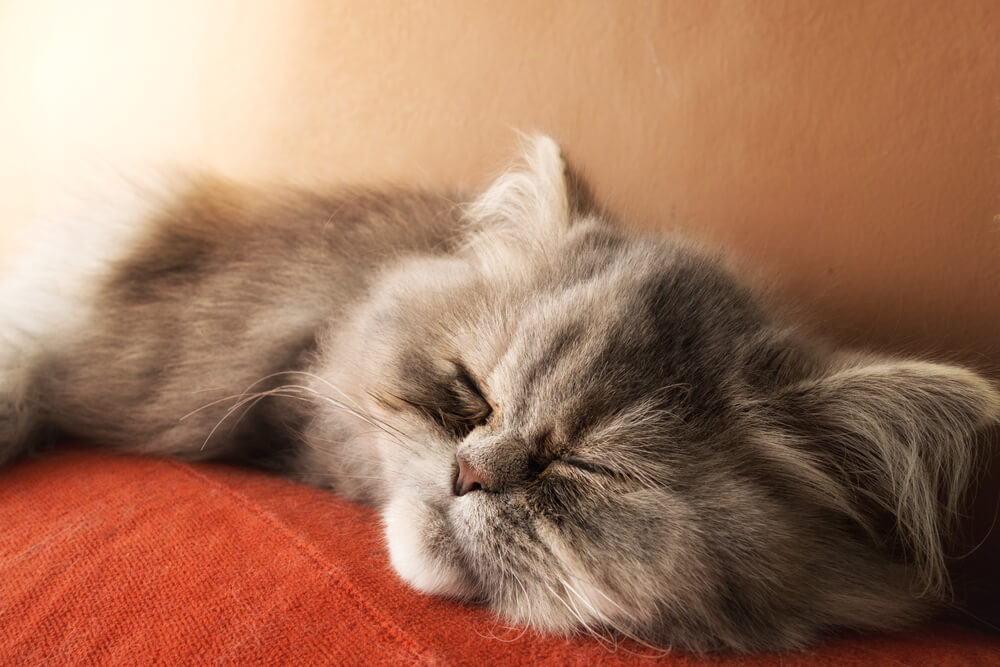
Persian cats are known for their laid-back nature and low activity levels, which lead them to sleep more than other cat breeds.
On average, they sleep around 12 to 16 hours a day. However, this can vary depending on the stage of life they are in. Kittens and senior cats tend to sleep longer, sometimes up to 20 hours a day.
It is essential for you, as a Persian cat owner, to pay attention to your cat’s behavior during their awake hours.
By observing them closely, you can ensure they are getting enough sleep and maintain their overall health. Adequate sleep is vital for their immune system, cognitive function, and general well-being.
Remember to provide your Persian cat with a comfortable and quiet environment for them to sleep. Make sure they have a cozy bed or sleeping area where they can feel safe and secure.
In conclusion, keeping track of your Persian cat’s sleep patterns and providing them with a suitable sleeping environment can go a long way in promoting their overall health and happiness.
As a responsible owner, always be aware of any changes in their sleeping habits and consult your veterinarian if you notice any concerning signs.
Frequently Asked Questions
What is the average sleep duration for a Persian cat?
On average, Persian cats sleep for about 12 to 16 hours a day. However, they can sleep up to 20 hours a day. The sleep duration can vary depending on factors such as age, health, and activity levels.
Are Persian cats known for being more lethargic than other breeds?
While individual cats may have their unique temperaments, Persian cats are known to sleep for slightly longer durations than the average domestic cat.
Typically, Persian cats spend 16-20 hours sleeping each day, compared to the average domestic cat, which sleeps for about 12-16 hours daily.
What factors can affect a Persian cat’s sleep pattern?
Factors that can affect a Persian cat’s sleep pattern include their age, health, and activity levels. For instance, kittens and senior cats tend to sleep longer than adult cats in their prime years.
Is it normal for Persian kittens to sleep more than adult cats?
Yes, it’s normal for Persian kittens to sleep more than adult cats. As they are still developing and growing, kittens generally require more sleep.
Similarly, senior cats might also sleep longer due to age-related factors.
How do Persian cats adapt their sleep habits when left alone?
Cats, including Persian cats, are quite adaptable when it comes to their sleep habits. If you leave your Persian cat alone, they will most likely adjust their sleep pattern to match their environment and personal needs.
However, it is still important to provide your Persian cat with a comfortable and secure place to sleep in order to avoid stress or anxiety.
Do Persian cats have any particular sleeping preferences?
Persian cats, like other cats, enjoy having a comfortable and cozy sleeping spot. Providing a soft bed, blanket, or cushion can make your Persian cat feel more comfortable and secure as they sleep.
However, individual preferences may vary, so you might notice your Persian cat choosing different sleeping spots around your home depending on factors such as warmth, safety, and quietness.














